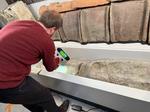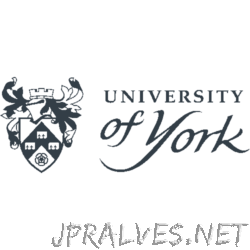Other

“Archaeologists in York have used 3D scans to study the Roman burial practice of pouring liquid gypsum over the bodies of adults and children laid to rest in coffins - the first time this cutting-edge technology has been applied to Roman …

“A material that can be used in technologies such as solar power has been found to self-heal, a new study shows. The findings - from the University of York - raise the prospect that it may be possible to engineer high-performance self-healing …

“Scientists have identified a sub-atomic particle that could have formed the “dark matter” in the Universe during the Big Bang. Up to 80% of the Universe could be dark matter, but despite many decades of study, its physical origin has …

“An international team of scientists has discovered a new route to ultra-low-power transistors using a graphene-based composite material. As transistors are squeezed into ever smaller areas within computer chips, the semiconductor industry struggles to contain overheating in devices. Now researchers …

“Scientists, including an academic from the University of York, have found an inexpensive and easy way to validate the authenticity of any paper document just by taking a picture of it on a standard camera. Analysing the translucent patterns revealed …

